After Brexit will more of us take our holidays in the UK?
- Published
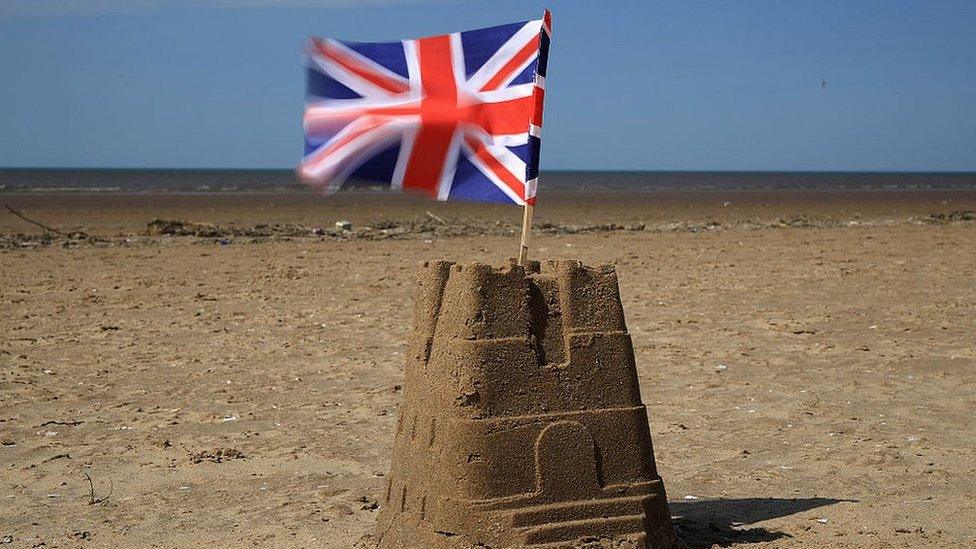
Could a weaker pound see more families building sandcastles on British rather than European beaches?
More of us could be spending this summer holidaying at home following the UK's Brexit vote, as the weaker pound makes foreign holidays more expensive.
Amid economic uncertainty over Britain's relations with the EU, the country's tourist industry could be one of the sectors to see a boost to business following the referendum result.
"I think that a weaker currency, particularly the pound versus the euro, is good news for tourism in this country," says Nick Varney.
He's chairman of the British Hospitality Association and chief executive of Merlin Entertainments, which runs the Legoland theme park, and Madame Tussauds in London.
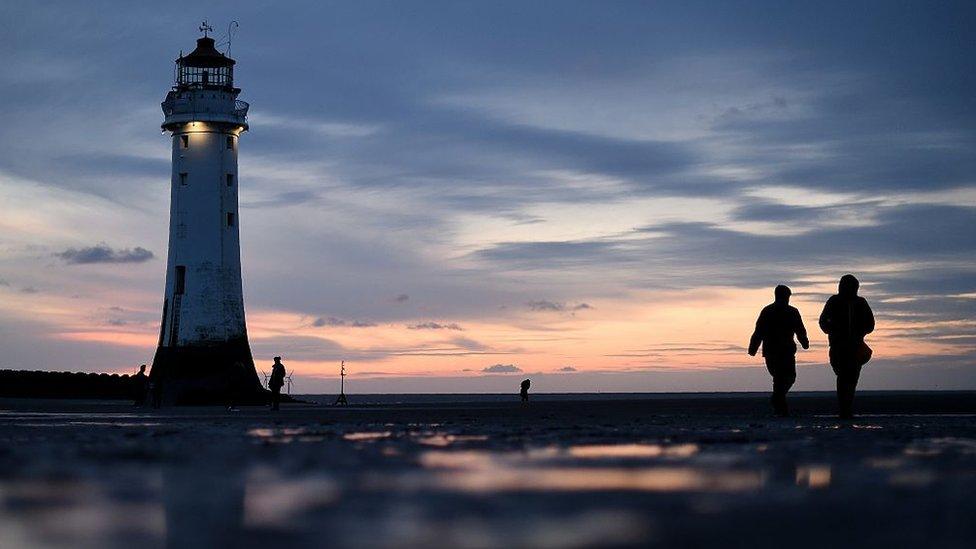
Tourism is the UK's fourth largest industry
"Historically it's been the case that when we see the pound reach 1.4 euros, we see a falling off in the number of foreign visitors," he says.
When the pound falls, the reverse is true and the UK becomes cheaper and more attractive to overseas tourists.
"Things need to settle down, but if sterling does stabilise at a more competitive rate - that will be good for an industry which is vital for the UK," he says.
And his view that with sterling now worth less, UK tourism could be one of the clear winners from Brexit is echoed by others in the industry.
"A big percentage of our overseas visitors come from EU countries, so it will be cheaper for them," says Barbara Clark, of Scotland's tourist agency, Visit Scotland.
Belgian business entrepreneur Peter Schellinck told the BBC he was planning more visits to the UK thanks to the weaker pound. "This makes it much more attractive to me to come to Britain."

Holidaying in the UK
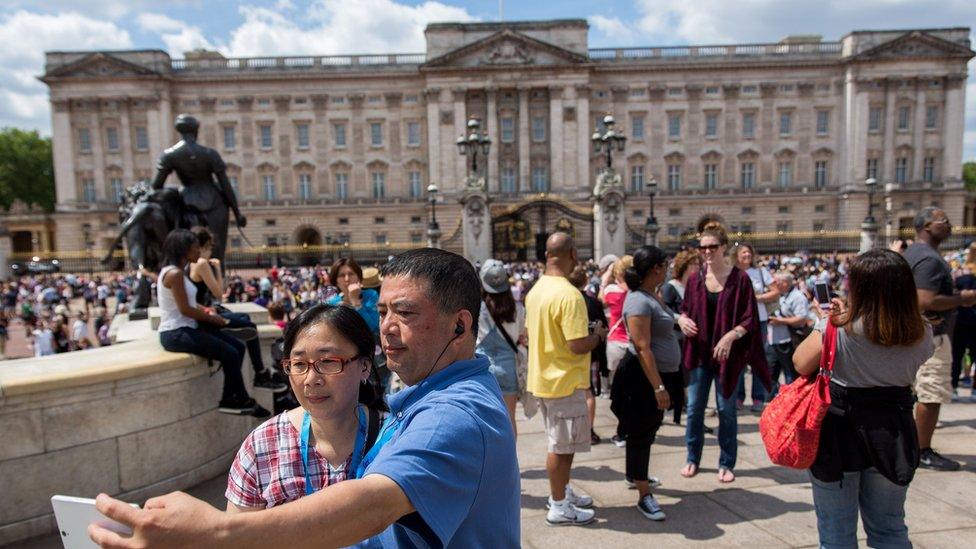
Tourism is one of the country's biggest earners, worth £121.1bn a year
It accounts for 7.1% of the UK's economy, according to the industry body, the Tourism Alliance, external
Almost four million people work in the sector
Nine million holidaymakers came to the UK from the EU last year, says the travel agents group Abta
They account for 44% of all overseas visitors spending in the UK - £9.5bn a year

Long term moves
Jim Forward, chief executive of HF Holidays, the walking and outdoor leisure specialist which runs holidays in the UK and abroad, says it is the longer-term value of sterling which is key.
"In previous years currency fluctuations have created a slight movement in the number of inbound or outbound passengers depending which way the currency has moved.
"In a book-in-advance travel business where our guests book up to a year in advance, we are affected less by sudden currency movement but more through long-term change," he says.
"Like all tour operators we will be watching the long-term currency forecast to plan and adapt our holidays."
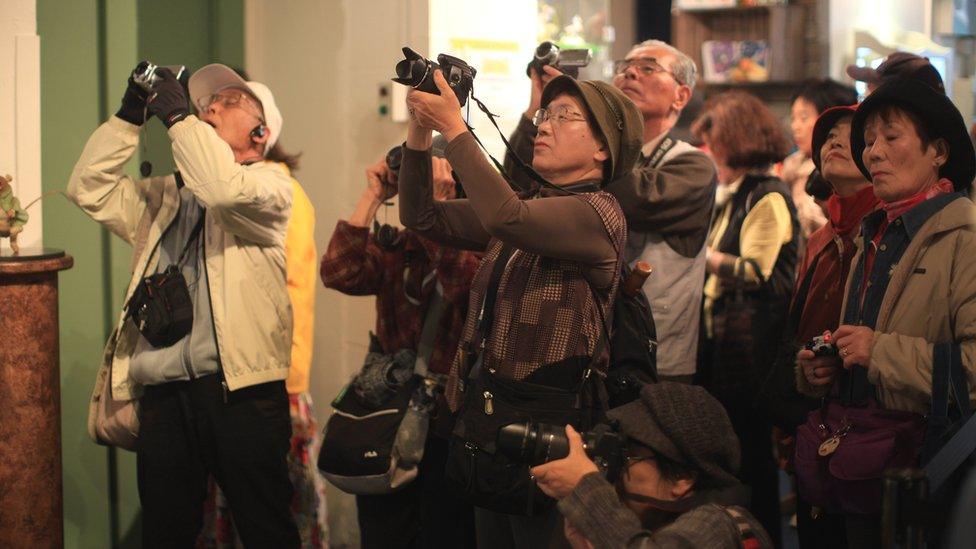
Beatrix Potter is a key attraction for many Japanese visitors who come to the UK
Yet, not everybody is convinced that Brexit will prove to be that relevant to them.
Center Parcs UK, which runs five holiday villages in Britain, says it regularly has significant over-demand, and "our villages are full all year round".
And while some of us may be changing our plans for the summer - especially if we've yet to book - those who have already paid for their overseas trips are unlikely to alter things just because their spending money will not now go as far.
Hotel vacancies
There is also a question mark over just how much the UK's domestic tourism industry will be hit by a fall in business travellers - always more important for many hotels than leisure visitors.
"Hotels need almost twice as many new leisure visitors to make up for business travellers who've cancelled," says Stephen Broome, lead hotel consultant at PwC.
"That's because hotels earn a lot more from corporate guests than they do leisure travellers."
The weakening pound will help draw in new business, he says, but it is not going to be enough to replace the corporate travellers who're no longer coming to the UK as the political uncertainty sees businesses putting plans on hold.
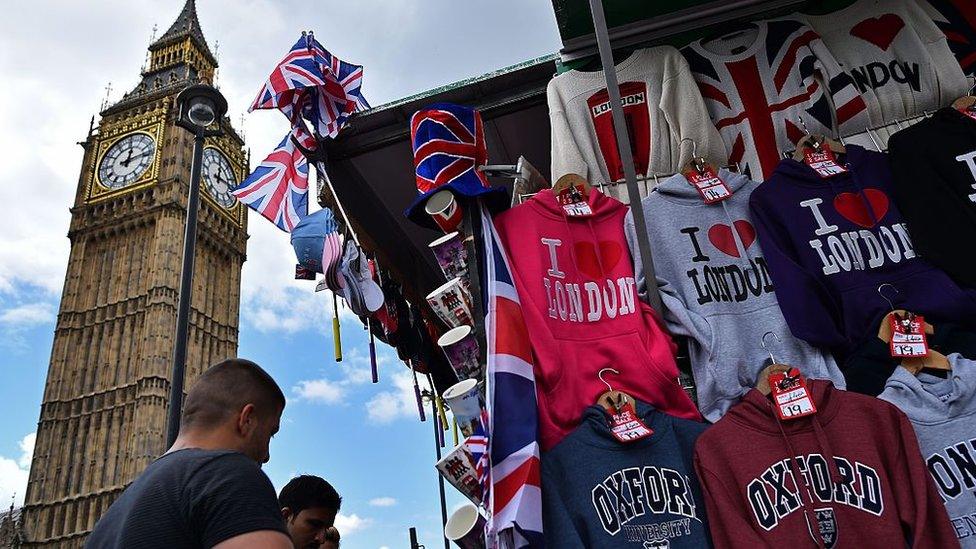
Fewer business travellers are coming to London as companies scale back on their plans
"UK hotels face a slow down, not a meltdown. Since last year demand for hotel rooms has been slowing - particularly in London - due to nervousness on the part of business travellers."
But while this may be bad news for hotels, there's a silver lining if you're looking for a cheaper hotel room.
"If you take London, we've seen above-average supply growth in the past couple of years.
"This new supply [of hotel rooms] is now coming on stream," says Mr Broome, just at a time when demand is slowing.
"It could be a good time to get a bargain."